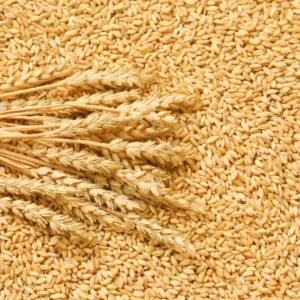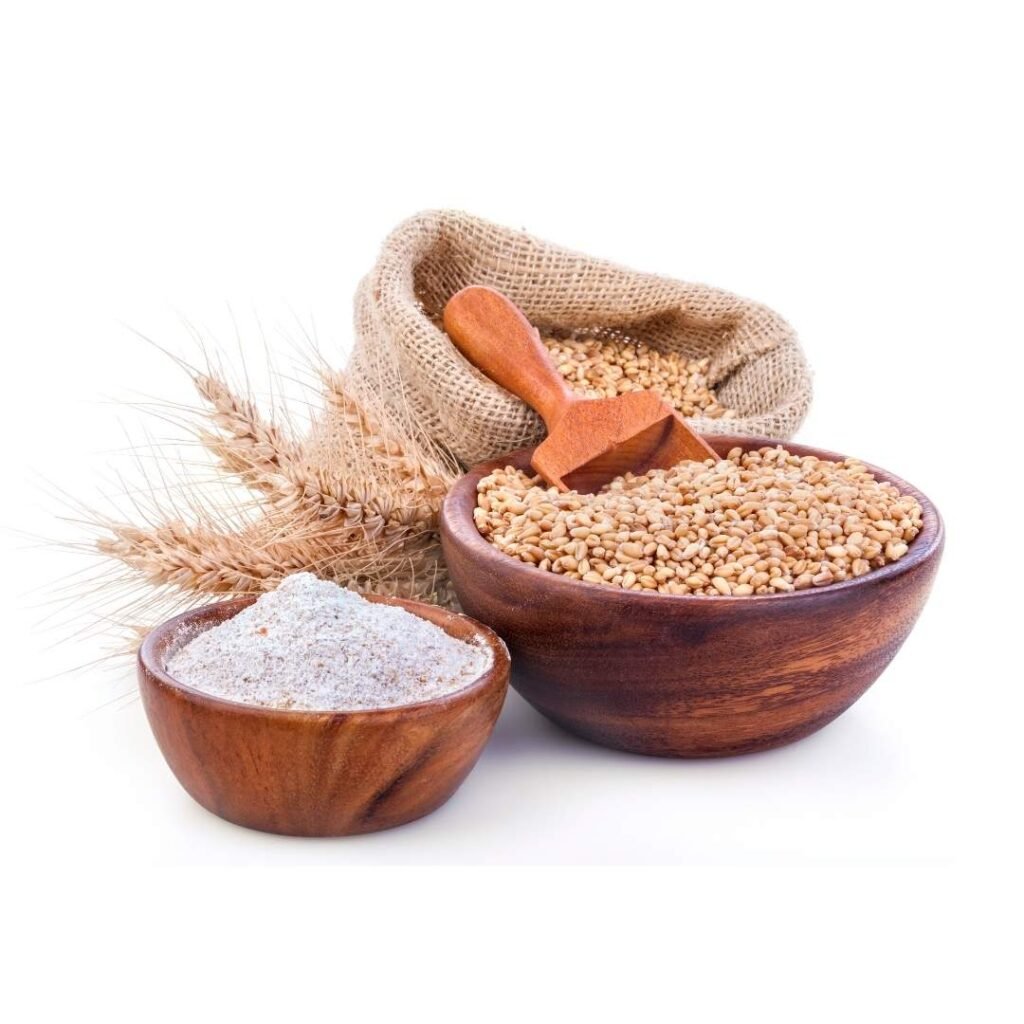What Is Wheat Protein? Benefits, Nutrition & Possible Side Effects
Wheat is one of the most widely consumed grains in the world and plays a key role in our diet. Along with being a rich source of carbohydrates, wheat also contains a good amount of plant-based protein. On average, 7–22% of wheat’s dry weight is protein, and a large part of it comes from gluten proteins, which give bread its soft, stretchy texture.
Unlike animal proteins, wheat protein does not provide all essential amino acids. This means it should be combined with other protein-rich foods such as pulses, nuts, or dairy for a more balanced nutrition profile.

Health Benefits of Wheat Protein
1. Provides Energy
Wheat is naturally paired with carbohydrates, which break down into glucose and fuel the body. This makes wheat products an excellent source of sustained energy.
2. Supports Digestive Health
Whole wheat is high in dietary fiber, which improves digestion, prevents constipation, and keeps you feeling fuller for longer. This can also help with healthy weight management.
3. Contributes to Heart Health
Regular consumption of whole wheat may reduce the risk of cardiovascular disease. Fiber helps lower cholesterol, while minerals such as magnesium and potassium support heart function.
4. Good Plant-Based Protein Source
For people following a vegetarian or vegan diet, wheat contributes to daily protein requirements. Depending on the wheat variety, protein levels range between 8.5% and 15%, with harder wheat types generally having more protein.
5. Packed with Essential Nutrients
Whole protein is also rich in minerals like calcium, magnesium, phosphorus, and potassium, and vitamins such as folate, niacin, and thiamin. These nutrients help in bone strength, energy production, and overall wellness.
Wheat Nutrition (Per 100g Whole Wheat Flour)

Protein: 15 g
Fiber: 10.6 g
Carbohydrates: 71.2 g
Calcium: 38 mg
Magnesium: 136 mg
Phosphorus: 352 mg
Potassium: 376 mg
Folate: 39 mcg
Niacin (Vitamin B3): 5.5 mg
Thiamin (Vitamin B1): 0.5 mg
Side Effects of Wheat Protein
For most people, protein is safe and healthy. However, certain individuals may experience side effects:
Wheat Allergy – A small percentage of people are allergic to wheat. Symptoms may include skin irritation, breathing problems, stomach pain, or nausea. In rare cases, severe allergic reactions may occur and require immediate medical care.
Gluten Sensitivity – Those with gluten intolerance or celiac disease should avoid gluten, as it may cause digestive issues, fatigue, or nutrient malabsorption.
Final Thoughts
Wheat is a nutritious plant-based protein source that provides energy, supports digestion, and contributes to heart health. It also offers vitamins and minerals that improve overall well-being.
Still, people with wheat allergy or gluten sensitivity should avoid it. For everyone else, including whole wheat in the diet is a simple way to enjoy the benefits of both protein and fiber-rich nutrition.
Frequently Asked Questions
1. What is wheat protein?
Triticum aestivum protein is a plant-based protein found in wheat grains. It mainly consists of gluten proteins, which give bread and baked goods their soft, elastic texture.
2. Is Triticum aestivum healthy?
Yes, Triticum aestivum is healthy for most people. It provides energy, supports digestion, and contains essential nutrients like fiber, magnesium, and B vitamins.
3. Does wheat protein help in weight loss?
Whole wheat protein is high in fiber, which keeps you full for longer and helps control appetite. This makes it beneficial for healthy weight management.
4. What are the side effects of wheat protein?
Wheat protein may cause allergies in some people. Those with wheat allergy or gluten intolerance (celiac disease) should avoid it, as it may trigger digestive or allergic reactions.
5. How much protein is there in one wheat roti?
One medium-sized wheat roti (made from ~30–35 g whole wheat flour) contains 3–4 grams of protein.
Related post: Top 5 Health Benefits of Haldi (Turmeric)
Know more about Wheat: Click here
